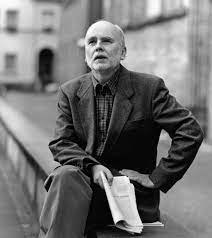
In the past few days, I’ve been enjoying the poet Carl Phillips’ new collection of essays on writing poetry, My Trade Is Mystery: Seven Meditations from a Life in Writing. The seven topics he riffs on are “Ambition,” “Stamina,” “Silence,” “Politics,” “Practice,” “Audience,” and “Community.” An instructive parlor game might be to list these by order of importance to a successful writer. After you define “successful,” that is.
In the first meditation, Phillips takes on the Siren call of poetry contests. For poets subjected to their share of rejections, it reads like a pleasant balm after a marathon run. Here are some key thoughts Phillips offers on “the desire to show one’s work to the world”:
“The dangers of this form of ambition are many. Its first strategy is to seduce by distorting logic: ‘If I’m published in a magazine, I’ll be a real writer.’ It becomes quickly addictive: ‘If my poems could be published in a book, I’ll truly have made it’ leads easily to ‘If my book wins a prize, I’ll be the best writer, having triumphed over all the other contenders.’ I believe very few artists avoid falling into some version of this thinking from time to time. As artists, we have something to say, and because we are saying it, it feels—it is—personal, which makes us vulnerable, which in turn makes us long for the protection that, at first, public approbation feels like, protection ultimately from our own fears and doubts as to our ‘worthiness,’ our ‘right’ to call ourselves an artist, maybe even a good one.”
Over time, Phillips has become skeptical of juried prizes for writing, as “winning a prize for art, far from meaning you were the best today, really just means that a randomly assembled group of humans and therefore subjective and each-with-their-own–biases judges came to an agreement—itself often uneasy—that your art was deserving of a prize. That doesn’t make it the best or, to be absolutely honest, even good.”
Still, writers will take that prize and willingly jump into Hemingway’s famous last line in The Sun Also Rises: “Isn’t it pretty to think so?”
And why not? After being rejected too many times to count, paying reading fees for naught umpteen times, entering contests where their work never get past a certain reader to the eyes of the deciding panel of editors slash judges, most any poet would happily delude himself with a literary victory, suspect as it may be.
To my mind, then, Phillips counsel is better used to not enter contests at all. You could even take it to the extreme and not submit to poetry journals while you’re at it, but a better compromise might be to save your pennies (which, over the course of a year, add up to more dollars than you want to count) by only submitting to journals that do not charge a reading fee for the questionable pleasure of judging your art.
Phillips concludes with these thoughts: “Prizes are part of the politics that attend art the way flies attend horses. They ultimately distract from what, as far as I can tell, art is mostly about: the urgency of and devotion to and sheer pleasure in the act of making some form of expression for what it means to be alive in a human body at this moment in time.”
Phillips, who has been a teacher all his life, tells his students that writing requires “luck, some talent, and stamina: a constant calibrating and recalibrating of arrogance and humility.”
I like that strange brew because it’s true. There’s a certain lovely arrogance to submitting work you’re sure is good enough for acceptance and print. Humility comes when you’re rejected. Or accepted and destined to see your poem in print months after the fact.
You know. When the restless reviser in you whispers its hot breath in your ear: How could you have considered this work “done”?
